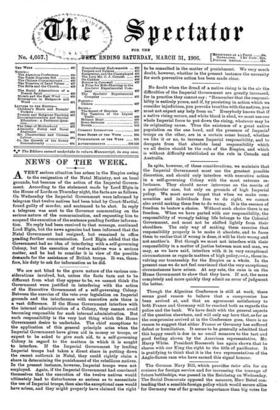We are not blind to the grave nature of the
various con- siderations involved, but, unless the facts turn out to be different from what they appear to be, we cannot think the Government were justified in interfering with the action of the Executive Government of a self-governing Colony. Between the exercise of the veto over legislation on Imperial grounds and the interference with executive acts there is a vast difference. If the Home Government interfere with the internal administration of a Colony, they cannot avoid becoming responsible for such internal administration. But such responsibility is the very last thing which the Home Government desire to undertake. The chief exceptions to the application of this general principle arise when the Imperial Government have given aid in money or troops, or expect to be asked to give such aid, to a self-governing Colony in regard to the matters in which it is sought to interfere. If the Imperial Government by lending Imperial troops had taken a direct share in putting down the recent outbreak in Natal, they could rightly claim a share in determining the punishment of the rebellious natives. In the present instance, however, Imperial troops were not employed. Again, if the Imperial Government had convinced themselves that the execution of the twelve natives would ultimately lead to disturbances so serious as to necessitate the use of Imperial troops, then also the exceptional case would have arisen, and they might properly have claimed the right to be consulted in the matter of punishment. We very much doubt, however, whether in the present instance the necessity for such preventive action has been made clear.










































